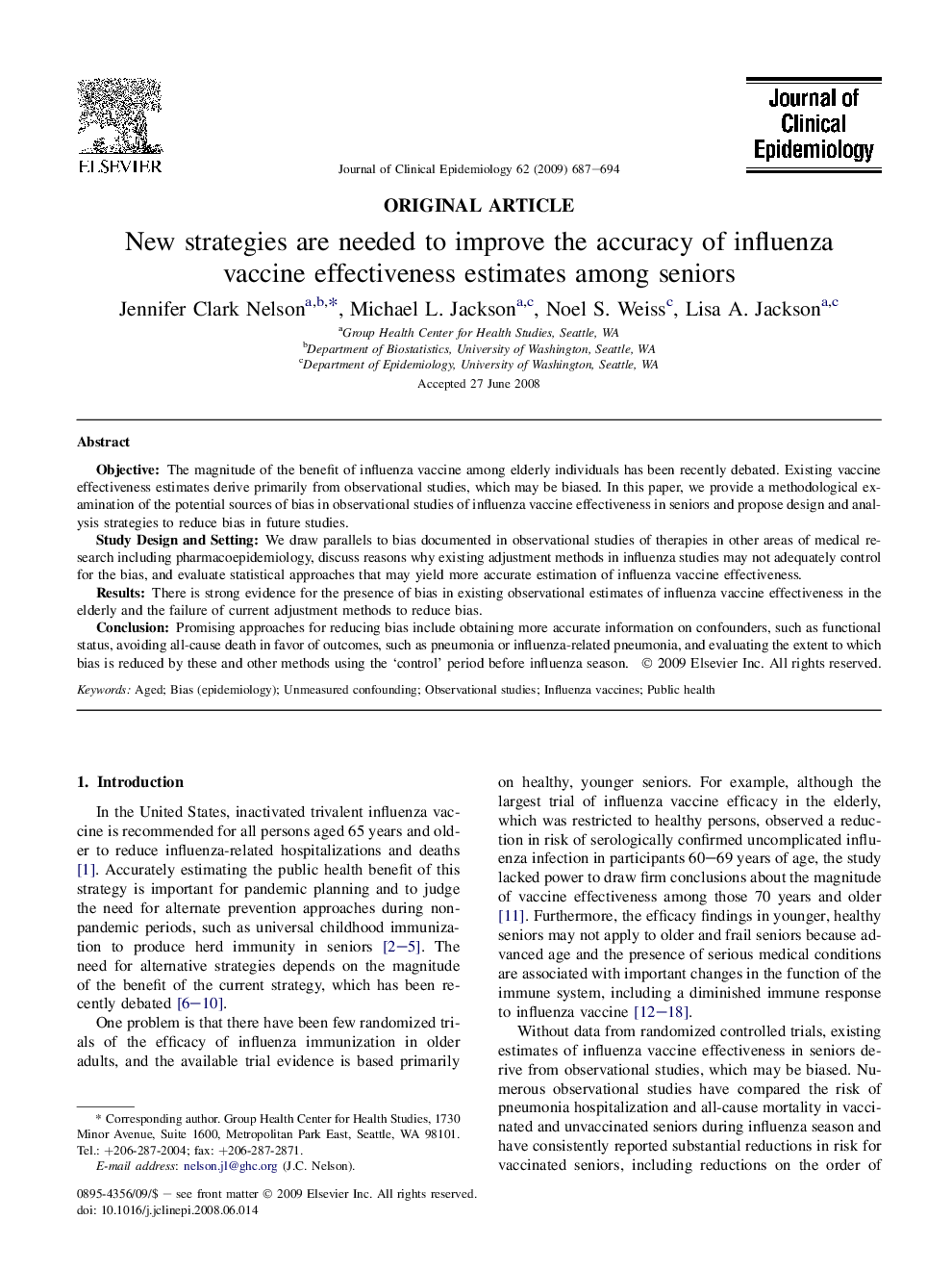| Article ID | Journal | Published Year | Pages | File Type |
|---|---|---|---|---|
| 1082693 | Journal of Clinical Epidemiology | 2009 | 8 Pages |
ObjectiveThe magnitude of the benefit of influenza vaccine among elderly individuals has been recently debated. Existing vaccine effectiveness estimates derive primarily from observational studies, which may be biased. In this paper, we provide a methodological examination of the potential sources of bias in observational studies of influenza vaccine effectiveness in seniors and propose design and analysis strategies to reduce bias in future studies.Study Design and SettingWe draw parallels to bias documented in observational studies of therapies in other areas of medical research including pharmacoepidemiology, discuss reasons why existing adjustment methods in influenza studies may not adequately control for the bias, and evaluate statistical approaches that may yield more accurate estimation of influenza vaccine effectiveness.ResultsThere is strong evidence for the presence of bias in existing observational estimates of influenza vaccine effectiveness in the elderly and the failure of current adjustment methods to reduce bias.ConclusionPromising approaches for reducing bias include obtaining more accurate information on confounders, such as functional status, avoiding all-cause death in favor of outcomes, such as pneumonia or influenza-related pneumonia, and evaluating the extent to which bias is reduced by these and other methods using the ‘control’ period before influenza season.
